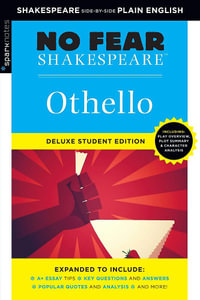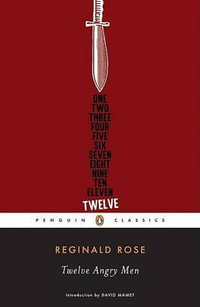In "An Oresteia," the classicist Anne Carson combines three different versions of the tragedy of the house of Atreus -- A iskhylos' "Agamemnon," Sophokles' "Elektra "and Euripides' "Orestes." After the murder of her daughter Iphigeneia by her husband, Agamemnon, Klytaimestra exacts a mother's revenge, murdering Agamemnon and his mistress, Kassandra. Displeased with Klytaimestra's actions, Apollo calls on her son, Orestes, to avenge his father's death with the help of his sister Elektra. In the end, Orestes is driven mad by the Furies for his bloody betrayal of family. Condemned to death by the people of Argos, he and Elektra must justify their actions -- or flout society, justice and the gods. Carson's translation combines contemporary language with the traditional structures and rhetoric of Greek tragedy, opening up this ancient tale of vengeance to a modern audience and revealing the essential wit and morbidity of the original plays. Anne Carson was born in Canada and teaches Ancient Greek for a living. She is currently a professor of classics, comparative literature and English at the University of Michigan, Ann Arbor. In this innovative rendition of" The Oresteia," the poet, translator, and essayist Anne Carson combines three different visions--Aiskhylos' "Agamemnon," Sophokles' "Elektra," and Euripides' "Orestes"--giving birth to a wholly new experience of the classic Greek triumvirate of vengeance. After the murder of her daughter Iphegenia by her husband Agamemnon, Klytaimestra exacts a mother's revenge, murdering Agamemnon and his mistress, Kassandra. Displeased with Klytaimestra's actions, Apollo calls on her son, Orestes, to avenge his father's death with the help of his sister Elektra. In the end, Orestes, driven mad by the Furies for his bloody betrayal of family, and Elektra are condemned to death by the people of Argos, and must justify their actions--signaling a call to change in society, a shift from the capricious governing of the gods to the rule of manmade law.
Carson's accomplished rendering combines elements of contemporary vernacular with the traditional structures and rhetoric of Greek tragedy, opening up the plays to a modern audience. In addition to its accessibility, the wit and dazzling morbidity of her prose sheds new light on the saga for scholars. Anne Carson's "Oresteia "is a watershed translation, a death-dance of vengeance and passion not to be missed. "Carson calls her book "An Oresteia"--as opposed to the "Oresteia." This isn't the trilogy of Aeschylus. Rather, the book consists of plays by three different authors: Aeschylus' "Agamemnon," Sophocles' "Electra," Euripides' "Orestes." Each takes up some aspect of the House of Atreus, whose members, relations and dependents included not only Agamemnon and Clytemnestra and Helen, but Orestes, Electra, Menelaus, Cassandra . . . Many of them, predictably, came to a bad end. Half a century separates "Agamemnon" from "Orestes," and Carson, who supplies an introduction to each play, offers interesting speculation about how shifts in tone and perspective may reflect developments in Athenian history. Perhaps equally striking, however, is the continuity in her trilogy. In American poetry, anyway, 50 years is a long time (it would bridge the gulf between, say, Robert Frost and John Ashbery), and Carson's intelligent compilation--"an" "Oresteia"--attests to our enduring fascination in watching the highest-born families laid low."--Brad Leithauser, "The New York Times Book Review"
"Carson calls her book "An Oresteia"--as opposed to the "Oresteia." This isn't the trilogy of Aeschylus. Rather, the book consists of plays by three different authors: Aeschylus' "Agamemnon," Sophocles' "Electra "and Euripides' "Orestes." Each takes up some aspect of the House of Atreus, whose members, relations and dependents included not only Agamemnon and Clytemnestra and Helen, but Orestes, Electra, Menelaus, Cassandra . . . Many of them, predictably, came to a bad end. Half a century separates "Agamemnon" from "Orestes," and Carson, who supplies an introduction to each play, offers interesting speculation about how shifts in tone and perspective may reflect developments in Athenian history. Perhaps equally striking, however, is the continuity in her trilogy. In American poetry, anyway, 50 years is a long time (it would bridge the gulf between, say, Robert Frost and John Ashbery), and Carson's intelligent compilation--"an" "Oresteia"--attests to our enduring fascination in watching the highest-born families laid low."--Brad Leithauser, "The New York Times Book Review"
"Carson creates a new and very different resolution to the questions posed by Agamemnon's homecoming and murder. Her "Oresteia" includes only Aeschylus' "Agamemnon," juxtaposed with plays by two younger Athenian contemporaries based on the same myth: Sophocles' "Electra "and Euripides' "Orestes" . . . A brilliant reimagining of Aeschylus' trilogy, which is far darker and more ambiguous in its resolutions than the original."--Emily Wilson, "The Nation"
"Something bloody beautiful is going on over at Classic Stage, under the poker-faced, take-it-or leave-it title "An Oresteia." You should take it. Poet-classicist Anne Carson, a pedigreed academic with a barroom wit, has produced crisp, insouciant new translations of Aeschylus's "Agamemnon," Sophocles's "Elektra," and Euripides's "Orestes," where relaxed-fit colloquialisms hang smartly on all that fine old marble . . . "An Oresteia" is "the" Oresteia for this moment: enraged, engorged, amused."--Dan Kois and Scott Brown, "New York" magazine
"Carson, a Canadian poet who teaches at the University of Michigan, is one of my favorites. Most people have heard of "The Iliad" and "The Odyssey." Far fewer know the Oresteia, a story cycle that follows Agamemnon home after the Trojan War. Tragedy, blood, and caustic human blindness ensue, landing his son Orestes in an impossible dilemma. Carson translates one play ea























![Romeo & Juliet [Super Readable Edition] : Dyslexia-friendly Plays - William Shakespeare](https://www.booktopia.com.au/covers/200/9780008750329/3178/romeo-juliet-super-readable-edition-.jpg)

